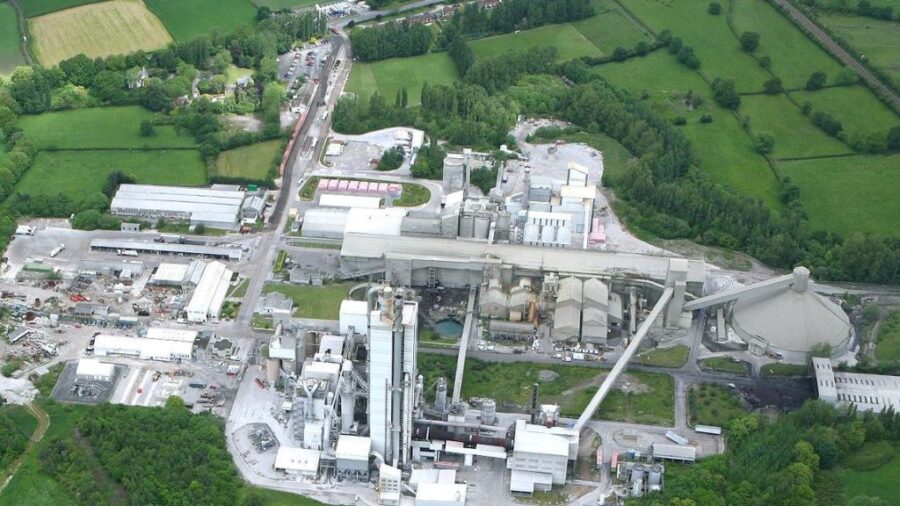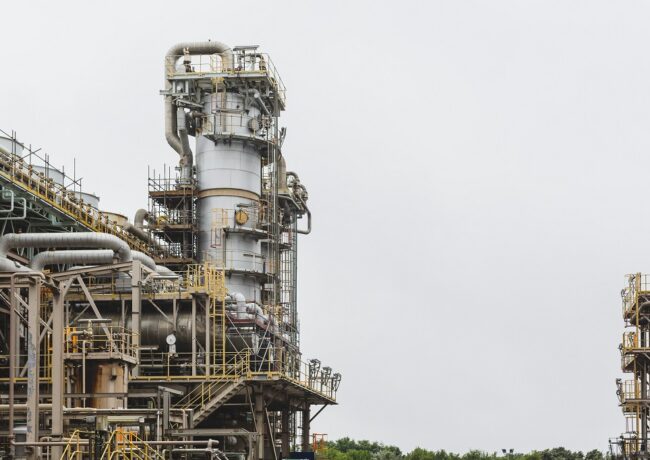Major carbon storage projects planned for Cumbria and Flintshire
Spirit Energy has announced its ambition to convert depleted gas fields by Barrow into a multi-billion-pound carbon storage cluster, while Hanson UK has begun a consultation for its £400m plans to build a similar facility in North Wales.
What is carbon capture and storage?
Carbon capture and storage is a method for reducing carbon dioxide emissions. CCS facilities will first separate the carbon dioxide from other gases, compress it, and transport the carbon to a site for storage. According to the National Grid, the ideal method for storing carbon is to inject it into deep underground rock formations.
There are two elements to CCS. Spirit Energy’s project focuses on the storage element, while Hanson’s is more about the capture segment.
The Cumbria plan
Spirit Energy’s proposals focus on the South Morecambe and North Morecambe gas fields, and Barrow Terminals by the Port of Barrow.
Both of the gas fields are nearing the end of their productive lifespan, with gas production set to end at the sites between 2025 and 2030. Spirit Energy said it would continue to harvest gas until the fields are depleted, building its carbon storage facility at the same time.
The energy company said its plans could create thousands of highly skilled green jobs in the region and represents a multi-billion-pound investment in the area.
The carbon storage cluster would be capable of holding up to one gigaton of carbon dioxide. Spirit Energy says that this amount is the equivalent of three years of the UK’s current carbon emissions.
“Our project will introduce cost-effective decarbonisation to businesses all over the UK, with a multi-billion-pound facility which means that a connection to a CO₂ export pipeline is no longer necessary to access carbon storage,” said Neil McCulloch, chief executive of Spirit Energy.
“Our new cluster will provide a solution for the UK’s industrial heartlands to reduce their carbon emissions, while also injecting significant green investment into Cumbria and the North West of England, where we have a proud history of working closely with the community and supporting local jobs and enterprise,” he concluded.
The project has earned praise from Simon Fell, MP for Barrow and Furness.
“This new cluster will put Barrow on the map as a centre for low-carbon innovation, bringing thousands of high-quality jobs to our town and across the whole of Cumbria, while also securing future employment for those already working on the gas fields,” Fell said.
Before the project can proceed, the North Sea Transition Authority will have to grant it a licence.
In the future, Spirit Energy said it was looking to add to the low-carbon nature of the proposed cluster. This includes exploring blue hydrogen production, hydrogen power generation, and other renewable power generation.

Padeswood cement works would be home to a CCS facility under Hanson UK’s plans. Credit: via consultation documents
The North Wales project
Low-carbon building material supplier Hanson is looking to build its own carbon capture and storage system at its Padeswood cement works in Flintshire.
Under the proposals, Hanson would invest £400m in building a carbon capture facility that would capture the carbon emitted during the manufacture of cement. The carbon would then be sent, via the underground HyNet pipeline network, to depleted gas reservoirs under the seabed of Liverpool Bay.
The CCS facility would be able to capture and store 800,000 tonnes of carbon a year, according to Hanson. This is the equivalent of removing 320,000 cars from the road, the company said.
If Hanson is successful with its plans, it would make the company’s Padeswood site one of the first net zero cement facilities in the country.
Hanson hopes to have the CCS facility operational in 2027. The consultation on the proposals runs until 21 February and can be found at padeswoodccs.co.uk.
David Quick, plant manager at Padeswood cement works, said he hoped the public would engage with the consultation.
“We are looking forward to sharing our updated plans with the community and discussing what will be a transformative project, for Flintshire, North Wales, and our industry as a whole,” Quick said.
“We hope they will see it for what it is – an opportunity to help place their local works at the forefront of the worldwide movement toward carbon-neutral building materials.”




